Shitty: We Meant ‘stronger’ Here, Right?
Shitty: We meant ‘stronger’ here, right?
Jack: What’s it say?
Shitty: [reading] ‘I’m proud to report that our team is stranger than it was a year ago.’
Jack: That’s a typo.
Shitty: It could go either way.
More Posts from Askyridersdomain and Others

but its important
I want to take a moment to talk about Trini. Yes, everyone has talked about this and I’m sure that whether or not you care about the Power Rangers reboot, you’ve heard about how the Yellow Ranger is a lesbian. I want to talk about why exactly this is significant, and why how it’s handled is so important.
Power Rangers, as a franchise, has had a history with the LGBT community from the very beginning, but not in a good way. David Yost, who played Billy in Mighty Morphin’ Power Rangers, is gay. Not only is he gay, but he ended up leaving the series due to constant harassment and homophobic bullying from the crew of the show. He walked off the set of Power Rangers Zeo and never looked back. The way they wrote his character out of the show? By having Billy fall in love with a woman offscreen. They offered him a part in a later series, but he understandably turned the offer down.
Despite the franchise’s focus on diversity, they’ve never had an explicitly queer ranger, or even supporting character. They’ve certainly hinted at it in a few cases, the most overt case being Vita Rocca in Power Rangers Mystic Force. She was butch, had a two part story about being the slave of a vampire queen, and enthusiastically agreed that said vampire queen is hot at the end of the season, but none of that was actual confirmation. It was just a little bit of winking and nodding when the moral guardians weren’t looking.
But then this movie came out. And we got to see Trini, the first ever Yellow Power Ranger, come out. Contrary to what you may have seen in fanart and fanfiction, Trini isn’t smooth with other girls, she isn’t openly gay, and she isn’t in a canon relationship with the Pink Ranger. I love those pieces of fanwork as much as the next person, but the movie itself provides a different picture of Trini’s relationship with her own sexuality.
Like I said before, for decades Power Rangers has never done more than playfully hint at a queer character. That changed with one scene. All five of the heroes, sitting around a campfire and talking about their personal issues. That scene is the first time the subject of sexuality has ever been openly discussed in Power Rangers.
It’s a scene where Trini, who has been reserved and has tried to isolate herself up until now, admitting that she likes how often her family moves around, because that way her parents never get a chance to ask her about her relationships. Zack, who up until this scene had been relentless in flirting with Trini and hitting on her, no matter how often he was pushed away and rejected, jokingly asks if she has boyfriend troubles. When he picks up the sarcasm in her response, it clicks for him, and for the audience. If you pay attention, Zack never once hits on Trini after that. He understands, and he treats Trini as nothing more than a friend from that point on.
“Girlfriend troubles?” Is the first time I can ever remember the concept of someone being gay being brought up in a superhero movie. Despite gay and bisexual characters being in films before (Iceman, Mystique, Catwoman, Harley Quinn, Wonder Woman, etc.) their sexualities were ignored and pushed to the side, where viewers wouldn’t see them. But with Power Rangers, Saban finally tried to make up for their past treatment of LGBT people. It’s Billy, now played by RJ Cyler, who tells Trini that her friends will accept her no matter what.
And Trini? She admits that she’s never told anyone about her sexuality before. She’s never openly said that she likes other girls. She tears up when she talks about it, about how terrified she is of coming out to her family. How she doesn’t even know how to tell them what’s going on. And with the overwhelming, sickening trend in film and television of murdering lesbian and bisexual characters, Power Rangers ends with a scene of all the Rangers hanging out in detention. The last shot we see of Trini? Smiling at her friends and playing with a pen. Alive. Happy. Healthy. Knowing that her friends are aware she likes girls, and knowing that they’ll always be there for her.
This movie is the first time that lesbian and bisexual women have been able to see themselves as superheroes on the big screen. It’s the focus of Trini’s character arc, finding acceptance among her new friends. So often, LGBT teens end up in a position where they don’t know how to talk about what they’re feeling. They feel trapped and alone, and this movie went and told them that they won’t be. They’ll find people who love and cherish them. There’s a hero who is like them, and who is struggling with her identity just like they are.
I’m not afraid to admit that I cried when Trini came out. I’m sure I wasn’t the only woman who teared up at finally, finally being able to see herself in a superhero. It feels so powerful, and so wonderful.


Are you fucking serious?

In my humble opinion

Are fedoras really that bad?





YES YES THEY ARE
each time i start shipping something my soul is split again and a new horcrux is made

In my humble opinion

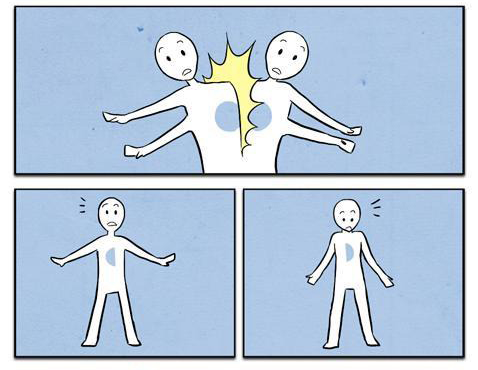
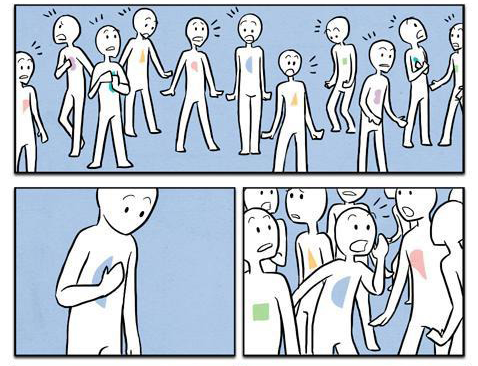
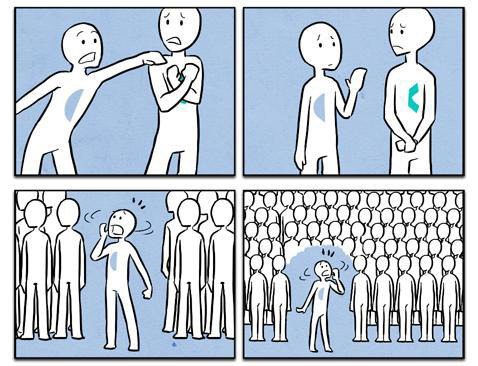
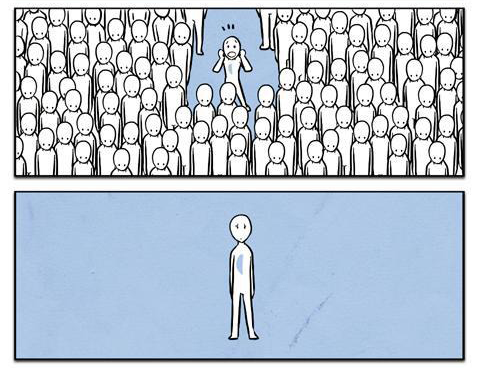

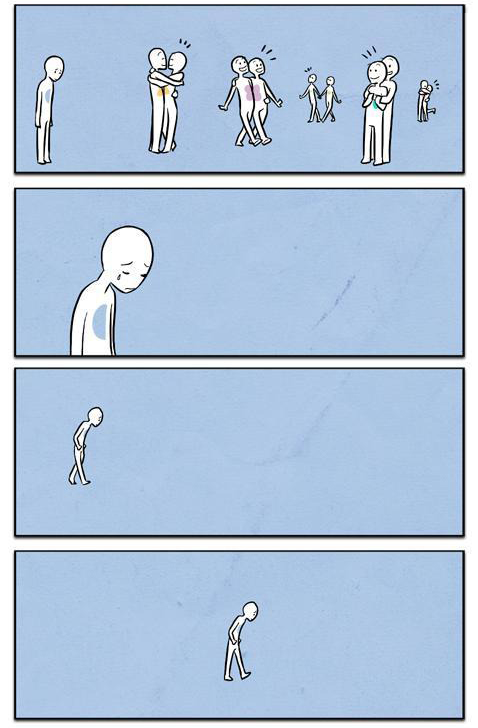
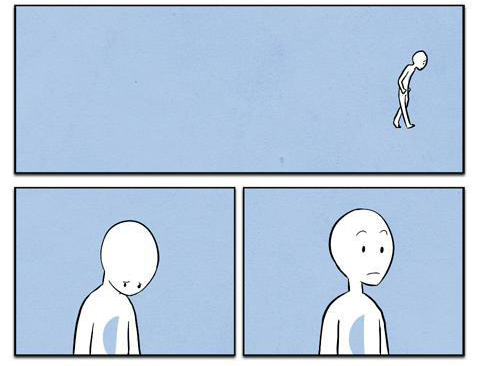
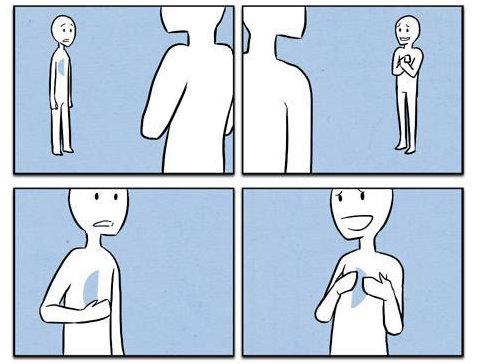

So... Wicked is coming back in style. And as such I need to make a little informative post.
Because since as early as my arrival onto the Internet, in the distant years of the late 2000s, a lot of people have been treating Wicked as some sort of "official" part of the Oz series. As part of the Oz canon or as THE "original" work everything else derives from (literaly, some people, probably kids, but did believe the MGM movie was made BASED on Wicked...) And as an Oz fan, that bothers me.
[Damn, ever since I watched Coco Peru's videos her voice echoes in my brain each time I say this line.]
So here's a few FACTS for you facts lovers.
The Wicked movie that is coming out right now (I was sold this as a series, turns out it is a movie duology?) is a cinematic adaptation of the stage musical Wicked created by Schwartz and Holzman, the Broadway classic and success of the 2000s (it was created in 2003).
Now, the Wicked musical everybody knows is itself an adaptation - and this fact is not as notorios, somehow? The Wicked musical is the adaptation of a novel released in 1995 by Gregory Maguire, called Wicked: The Life and Times of the Wicked Witch of the West. A very loose and condensed adaptation to say the least - as the Wicked musical is basically a lighter and simplified take on a much darker, brooding and mature tale. Basically fans of the novel have accused the musical of being some sort of honeyed, sugary-sweet, highschool-romance-fanfic-AU, while those who enjoyed the musical and went to see the novel are often shocked at discovering their favorite musical is based on what is basically a "dark and edgy - let's shock them all" take on the Oz lore. (Some do like both however, apparently? But I rarely met them.)
A side-fact which will be relevant later, is that this novel was but the first of a full series of novel Oz wrote about a dark-and-adult fantasy reimagining of the land of Oz - there's Son of a Witch, A Lion Among Men, Out of Oz, and more.
However the real fact I want to point out is that Maguire's novel, from which the musical itself derives, is a "grimmification" (to take back TV Tropes terminology) of the 1939 MGM movie The Wizard of Oz. The movie everybody knows when it comes to Oz, but that everybody forgets is itself the adaptation of a book - the same way people forget the Wicked musical is adapted from a novel. The MGM movie is adapted from L. Frank Baum's famous 1900 classic for children The Wonderful Wizard of Oz - and a quite loose adaptation that reimagines a lot of elements and details.
Now, a lot of people present Maguire's novel as being based/inspired/a revisionist take on Baum's novel... And that's false. Maguire's Wicked novel is clearly dominated by and mainly influenced by the MGM movie, with only a few book elements and details sprinkled on top. Mind you, the sequels Maguire wrote do take more elements, characters and plot points from the various Oz books of Baum... But they stay mostly Maguire's personal fantasy world. Yes, Oz "books" in plural - because that's a fact people tend to not know either... L. Frank Baum didn't just write one book about the Land of Oz. He wrote FOURTEEN of them, an entire series, because it was his most popular sales, and his audience like his editor pressured him to produce more (in fact he got sick of Oz and tried to write other books, but since they failed he was forced to continue Oz novels to survive). Everybody forgot about the Oz series due to the massive success of the starter novel - but it has a lot of very famous sequels, such as The Marvelous Land of Oz or Ozma of Oz (the later was loosely adapted by Disney as the famous 80s nostalgic-cursed movie Return to Oz).
So... To return to my original point. The current Wicked movies are not directly linked in any way to Baum's novel. The Wicked musical was already as "canon" and as "linked" to the MGM movie as 2013's Oz The Great and Powerful by Disney was. As for Maguire's novel, due to its dark, mature, brooding and more complex worldbuilding nature, I can only compare it to the recent attempt at making a "Game of Thrones Oz" through the television series Emerald City.
The Wicked movies coming out are separated from Baum's novel at the fourth degree. Because they are the movie adaptation of a musical adaptation of a novel reinventing a movie adaptation of the original children book.
And I could go even FURTHER if you dare me to and claim the Wicked movies are at the 5TH DEGREE! Because a little-known-fact is that the MGM movie was not a direct adaptation of Baum's novel... But rather took a lot of cues and influence from the massively famous stage-extravaganza of 1902 The Wizard of Oz... A musical adaptation of Baum's novel, created and written by Baum himself, and that was actually more popular than the novel in the pre-World War II America. It was from this enormous Broadway success (my my, how the snake bites its tail - the 1902 Wizard of Oz was the musical Wicked of its time) that, for example, the movie took the idea of the Good Witch of the North killing the sleeping-poppies with snow.
-
 storybook-strange liked this · 4 years ago
storybook-strange liked this · 4 years ago -
 goddmanit liked this · 4 years ago
goddmanit liked this · 4 years ago -
 berrybreadd liked this · 4 years ago
berrybreadd liked this · 4 years ago -
 skiemajere liked this · 5 years ago
skiemajere liked this · 5 years ago -
 oliviamms liked this · 5 years ago
oliviamms liked this · 5 years ago -
 c0rvidfagg0try liked this · 5 years ago
c0rvidfagg0try liked this · 5 years ago -
 darkacademiagay liked this · 5 years ago
darkacademiagay liked this · 5 years ago -
 vmiintt liked this · 5 years ago
vmiintt liked this · 5 years ago -
 ifimabitch liked this · 5 years ago
ifimabitch liked this · 5 years ago -
 not-a-bit-tamed reblogged this · 5 years ago
not-a-bit-tamed reblogged this · 5 years ago -
 not-a-bit-tamed liked this · 5 years ago
not-a-bit-tamed liked this · 5 years ago -
 miss-macca liked this · 5 years ago
miss-macca liked this · 5 years ago -
 taterbugmashkov reblogged this · 5 years ago
taterbugmashkov reblogged this · 5 years ago -
 enchiladas-are-vegetables liked this · 5 years ago
enchiladas-are-vegetables liked this · 5 years ago -
 cowardhe liked this · 6 years ago
cowardhe liked this · 6 years ago -
 okgal21 liked this · 6 years ago
okgal21 liked this · 6 years ago -
 deltayork reblogged this · 6 years ago
deltayork reblogged this · 6 years ago -
 deltayork liked this · 6 years ago
deltayork liked this · 6 years ago -
 applepiesaid liked this · 6 years ago
applepiesaid liked this · 6 years ago -
 imafraidofwhitevans reblogged this · 6 years ago
imafraidofwhitevans reblogged this · 6 years ago -
 over-my-shapely-calves liked this · 6 years ago
over-my-shapely-calves liked this · 6 years ago -
 rambelle-on reblogged this · 6 years ago
rambelle-on reblogged this · 6 years ago -
 rambelle-on liked this · 6 years ago
rambelle-on liked this · 6 years ago -
 essentialtoils liked this · 6 years ago
essentialtoils liked this · 6 years ago -
 plethoraofclethra liked this · 6 years ago
plethoraofclethra liked this · 6 years ago -
 ashitposter liked this · 7 years ago
ashitposter liked this · 7 years ago -
 allgayeverything reblogged this · 7 years ago
allgayeverything reblogged this · 7 years ago -
 allgayeverything liked this · 7 years ago
allgayeverything liked this · 7 years ago -
 mermaidghostplanet liked this · 7 years ago
mermaidghostplanet liked this · 7 years ago -
 pretty-boy-alec-lightwood liked this · 7 years ago
pretty-boy-alec-lightwood liked this · 7 years ago -
 pucksoutforpies reblogged this · 7 years ago
pucksoutforpies reblogged this · 7 years ago -
 crochetandconspiracy liked this · 7 years ago
crochetandconspiracy liked this · 7 years ago -
 spilledparchment liked this · 7 years ago
spilledparchment liked this · 7 years ago -
 jorden-anyah liked this · 7 years ago
jorden-anyah liked this · 7 years ago -
 lady2828 reblogged this · 7 years ago
lady2828 reblogged this · 7 years ago -
 lady2828 liked this · 7 years ago
lady2828 liked this · 7 years ago -
 italianconfusion liked this · 7 years ago
italianconfusion liked this · 7 years ago -
 jankkarinkatu liked this · 7 years ago
jankkarinkatu liked this · 7 years ago -
 janeaustenite00 liked this · 7 years ago
janeaustenite00 liked this · 7 years ago -
 fenoda liked this · 7 years ago
fenoda liked this · 7 years ago -
 haleyisaghost liked this · 7 years ago
haleyisaghost liked this · 7 years ago -
 wordmage-girl liked this · 7 years ago
wordmage-girl liked this · 7 years ago -
 basementhands liked this · 7 years ago
basementhands liked this · 7 years ago